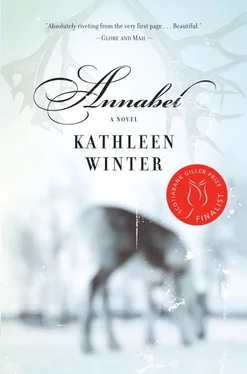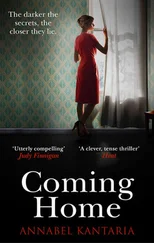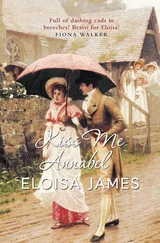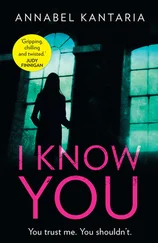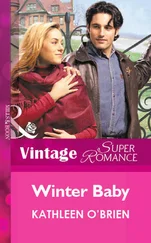Did boys not have moments of softness, moments of more incredible tenderness than girls did? Who was to say which moments were which? Many times during Wayne’s childhood a wind had whipped through Jacinta’s mouth. The world had breathed through her and told her that her son was also a daughter. Why had she questioned it? This wind had whipped through her mouth when it wished. One morning Wayne had blown through the door in his hockey gear and that wind had blown in with him. It blew in Jacinta’s mouth and she saw that Wayne’s skin and hair were made of girl material, girl molecules, girl translucence. She gave him Kool-Aid and a hot dog and told him to do his homework. Jacinta had let the blast blow through her and had not responded, but she felt sadder for the lost girl than if the lost girl had been herself.
Had Wayne grown up as a daughter and not as a son, Jacinta would have told him about her own girlhood in St. John’s. She’d have confided the little places to go: Snow’s, at the east end of Duckworth, crammed with violet pastilles and crinolines from the time Jacinta’s own mother was a child. Lar’s, all strung with lights at the bottom of Barters Hill, pyramids of candy apples — how did Lar get them to shine so hard? Caines Grocery, where Lee’s Snowballs were five cents. All of it changing, Jacinta had known, maybe gone, but she would have told Wayne of it, had he lived the life of Annabel. These were the things Jacinta thought in Croydon Harbour, on her own in the lonesome house with Treadway away on his winter trapline.
And it was true, St. John’s was not now the way it had been when Jacinta was a girl. On his first day there Wayne followed the advice of a woman on the ferry and went to the train station on Water Street to look at a bulletin board that had boarding houses and apartments listed on it, but he did not know any of the street names or where they were. He walked to Duckworth Street hoping to find a shop that would have a map, but all he passed were lawyers’ offices, and a shop that sold beans and grain in big glass jars, and the courthouse. He passed some little cafés, and it was not until he had got almost all the way to the Newfoundland Hotel and the Battery that he saw Caines Grocery, which was the kind of place where a person might find the map he needed. By this time he was dying to go to the toilet and he would have liked to sit down and rest, because his bag was heavy and he was tired from looking at everything intensely because it was all so new.
He could smell the ocean in a different way than he had smelled it in Labrador. Sewage ran into the harbour here, and there was a lot of it, with gulls circling over the outlet down below Caines Grocery, and you could smell it. There were also smells of seaweed, and fish and chips and vinegar from a van on the street. The houses were much brighter yellows, reds, and greens than in Labrador, and they were tall and narrow and stuck together. The houses looked bright but stern, and the air was so clear the colours shouted out loud at him, and he felt weary from the force of all the corners and the sharp lines of the clapboard.
There was a news rack with the Evening Telegram and the Newfoundland Herald , some real estate listings, and other brochures, and there were road maps of the entire highway system of Newfoundland and Labrador, but he could not see a map that was only of St. John’s. There was a man talking to a woman who had come to the cash register with two boxes of macaroni and cheese and a bag of apples. He was handing her something, a cheque. He did not address her by name.
“I think,” he said, “you must have mistakenly written this cheque the last time you came in here, not realizing it would bounce.” He said this kindly. He wore a shop apron stained with fingerprints and with blood from the meat counter, but Wayne felt that he was not a clerk. He had white hair and said everything to the woman in a gentle voice. There was no way the woman could argue. She took money out of her purse and was about to put the apples and the macaroni back, but the man told her it was all right. “You can take those,” he said, “and settle with us the next time you come in.” He let her go out feeling that he believed she had not written his store a bad cheque on purpose. Now the man turned to Wayne, and Wayne felt he could ask him for what he needed.
“I’m looking for a place to stay, and I need a map. And I would also like to use the toilet if you have one.”
The toilet was up the narrowest set of stairs Wayne had ever seen. When he came down again, the man, who said he was Mr. Caines, told him the stairs were a hundred years old, and two men were coming the next day to tear every one of them down and put up a new set that did not sag or creak and that would be six inches wider.
“You’ve just seen a relic that is about to be no more. I’m curious to know how they’ll do it.” Mr. Caines opened a new box of Caramel Log bars and set them beside the licorice. “I’d like to see how they dismantle that.”
He did not have a map for sale but he had his own map of downtown St. John’s behind the counter, and he opened it and showed Wayne how King’s Bridge Road opened onto a road called Forest Road behind the Newfoundland Hotel. “The Forest Road Apartments,” he said, “are the best place for someone like you to go. Someone new in town. You’ll get a clean apartment and it won’t be too expensive, and it’s only a twenty-minute walk from downtown… Steve!”
A boy who had been putting egg sandwiches in a cooler came over. Mr. Caines marked the route three times with a pencil, trying to be sure Wayne knew how to get there, then he said, “Steve, walk up the rest of the east end of Duckworth Street with this man here and show him how you get to Forest Road.” Mr. Caines looked up the phone number of Chesley Outerbridge. He said Chesley Outerbridge owned the Forest Road Apartments and would help Wayne if he told him Mr. Caines had directed him.
Steve was about fifteen years old and Wayne wondered why he was not in school. “Forest Road is useless,” he told Wayne. “You should go to the Battery, where I live. I know at least four places for rent over there, and you’ll get them a lot cheaper and it’s way more interesting. Katie Twomey’s place has no one living in it, and one wall is bare rock where water comes down into a little pool on the floor that you can drink out of.”
“Steve,” Mr. Caines said, “I’ve told Wayne about the Forest Road Apartments because lots of people new in town go there. They are good apartment buildings for anyone new.” To Wayne he said, “The Battery is all right if you were born into it, or if you’re a teacher at the university and you tear down one of the old houses and build your own new house. But half those houses have no water or sewer, and it’s a rough place.” He wrote down Chesley Outerbridge’s phone number and gave it to Wayne and asked Steve to do what he said and show Wayne the way, then come back and finish stocking the cooler.
Wayne bought a couple of pepperoni sticks and a box of chocolate graham squares and thanked Mr. Caines. The boy, Steve, came out with him.
“I can find it by myself.”
Wayne wondered if there was something about him that had made Mr. Caines think he could not find Forest Road by himself from a map that had been perfectly clear. He worried that Mr. Caines had thought he looked unintelligent. But when they got to the traffic circle on King’s Bridge Road, Wayne was glad of Steve, because the road turned crazy. It went five ways: down King’s Bridge Road, Military Road, Gower Street, Ordnance Street, and Fort William Place, leading to the hotel. Forest Road was just beyond this circle to the right, but without Steve, Wayne would not have found it. Steve told him his last name was Keating, and he wasn’t in school because it was after three o’clock. He couldn’t wait to be out of school for good though, because school was torture, and furthermore it was useless. Steve Keating said these things but Wayne could tell he was a smart kid. He could tell from the way Steve gave him his final directions, and because enthusiasm bubbled out of Steve Keating though he was only going back to Caines Grocery to stock Mr. Caines’s cooler with sandwiches and apple flips.
Читать дальше
